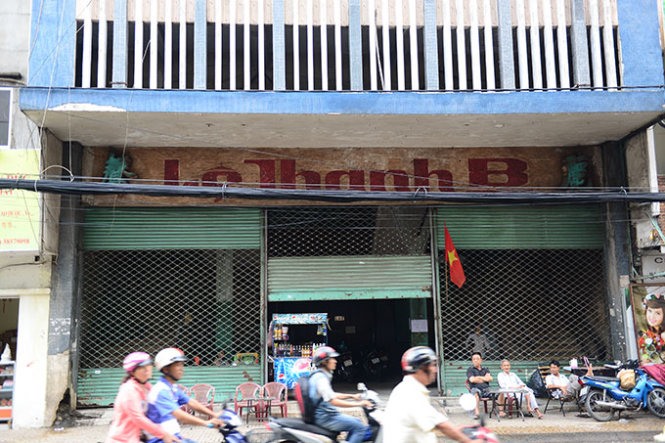 Life & Style
Life & Style

State-owned and private art troupes in HCM City are asking the city government to invest in construction and renovation of theatres to meet market demand.
 |
| National treasure trashed: Lệ Thanh Theatre, one of the city’s many theatres that has fallen in a state of ruin and has not staged a play in years. — Photo tuoitre.vn |
HCM CITY— State-owned and private art troupes in HCM City are asking the city government to invest in construction and renovation of theatres to meet market demand.
Nguyễn Hoàng, deputy director of the HCM City Hát Bội (classical drama) Theatre, said: “Traditional art troupes face difficulties and they have to stage plays in old theatres with poor facilities. More funds should be devoted to upgrade and build theatres.”
Last year, Hoàng’s troupe moved from the Long Phụng Theatre, a small building with 150 seats in District 1, to Thủ Đô Theatre in District 5.
“After spending money on relocation, we must improve management to create quality facilities with beautiful decor,” he said.
Hoàng, who has more than 37 years of experience in hát bội, said the art is a unique form of traditional Vietnamese theatre.
“Hát bội performances should be staged in a quality theatre with sound and light effects to deliver a lively performance for audiences,” he said.
He also recommended that the city spend more funds on building new theatres for traditional art troupes.
For several years, the HCM City Circus Theatre has had no theatre for their performances.
The circus theatre once performed in Kỳ Hòa Cultural Park, HCM City Zoo & Botanical Gardens and Đầm Sen Tourist Park. In 2012, it moved to a place in Gò Vấp District’s Gia Định Park.
“It is sad to see that some theatres were rebuilt for other purposes, while our private troupes have no theatre,” said Hồng Vân, owner of the Phú Nhuận Drama Troupe and Hồng Vân Drama Troupe.
Both of her troupes work on small stages under poor conditions at cultural centres in Tân Bình and Phú Nhuận districts.
Vân said her troupes perform every weekend but they often lose money.
“We have to pay too much for the rights to stage plays, and turnover from tickets does not cover operating costs,” she said.
“To resolve the problem and attract investment, new policies on taxes and building theatres should be at the top of the agenda,” she said.
According to a recent survey conducted by the Department of Culture, Sports and Tourism, the city has nine theatres owned by the Government with more than 5,000 seats and 12 private stages with 1,200 seats.
Most of these theatres are in poor condition and have failed to earn sufficient profits for the past few years.
Some theatres have been redeveloped as hotels and office buildings.
Recently, the managing board of the two biggest theatres, Bến Thành and Hòa Bình, and Thanh Vân Theatre owned by the HCM City Ballet Symphony Orchestra & Opera worked with several advertising and event companies to encourage the development of theatres.
“If this occurs, it will be good for theatre lovers, particularly young people, who prefer going to the theatre with their friends. But the biggest complaint is about the poor facilities,” said People’s Artist Trần Ngọc Giàu, director of the Trần Hữu Trang Theatre, the region’s biggest cải lương (reformed opera) theatre.
“Only with quality services can theatres satisfy the demands of fans and make a profit,” he added.
Giàu’s theatre has reopened in District 1’s Trần Hưng Đạo Street after three years of renovation. It includes a stage with 600 seats to serve the theatre’s training programmes and experimental performances.
The city’s Department of Culture, Sports and Tourism invested VNĐ132 billion (US$6 million) in the building as part of the efforts of local authorities to preserve cải lương in recent years.
According to Giàu, the theatre’s new shows, with tickets ranging from VNĐ100,000 ($4.5) to VNĐ200,000 ($9), will be staged every weekend.
Another new theatre, Rex Sen Vàng (Rex Golden Lotus), opened downtown earlier this year. It received investment from the Rex Hotel and Thái Dương Performance Company.
The VNĐ1.3 billion ($58,000) theatre has 150 seats and offers traditional performances such as water puppetry, royal dance in Huế style, hát bội (classical theatre) and cải lương (reformed opera).
“Our theatre offers quality traditional shows for tourists. We believe in our future,” said a representative of Thái Dương Performance Company, one of the city’s leading private agency in the industry.
Rex Sen Vàng’s shows begin at 8pm every day and tickets are VNĐ300,000 ($25). — VNS




